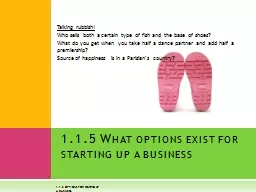PPT-Academic writing: tools and starting points to develop writ
Author : danika-pritchard | Published Date : 2016-06-11
Jo Eastlake je5soasacuk Three approaches in recent years have tended to characterize work on the development of students writing skills Product or text approaches
Presentation Embed Code
Download Presentation
Download Presentation The PPT/PDF document "Academic writing: tools and starting poi..." is the property of its rightful owner. Permission is granted to download and print the materials on this website for personal, non-commercial use only, and to display it on your personal computer provided you do not modify the materials and that you retain all copyright notices contained in the materials. By downloading content from our website, you accept the terms of this agreement.
Academic writing: tools and starting points to develop writ: Transcript
Download Rules Of Document
"Academic writing: tools and starting points to develop writ"The content belongs to its owner. You may download and print it for personal use, without modification, and keep all copyright notices. By downloading, you agree to these terms.
Related Documents














